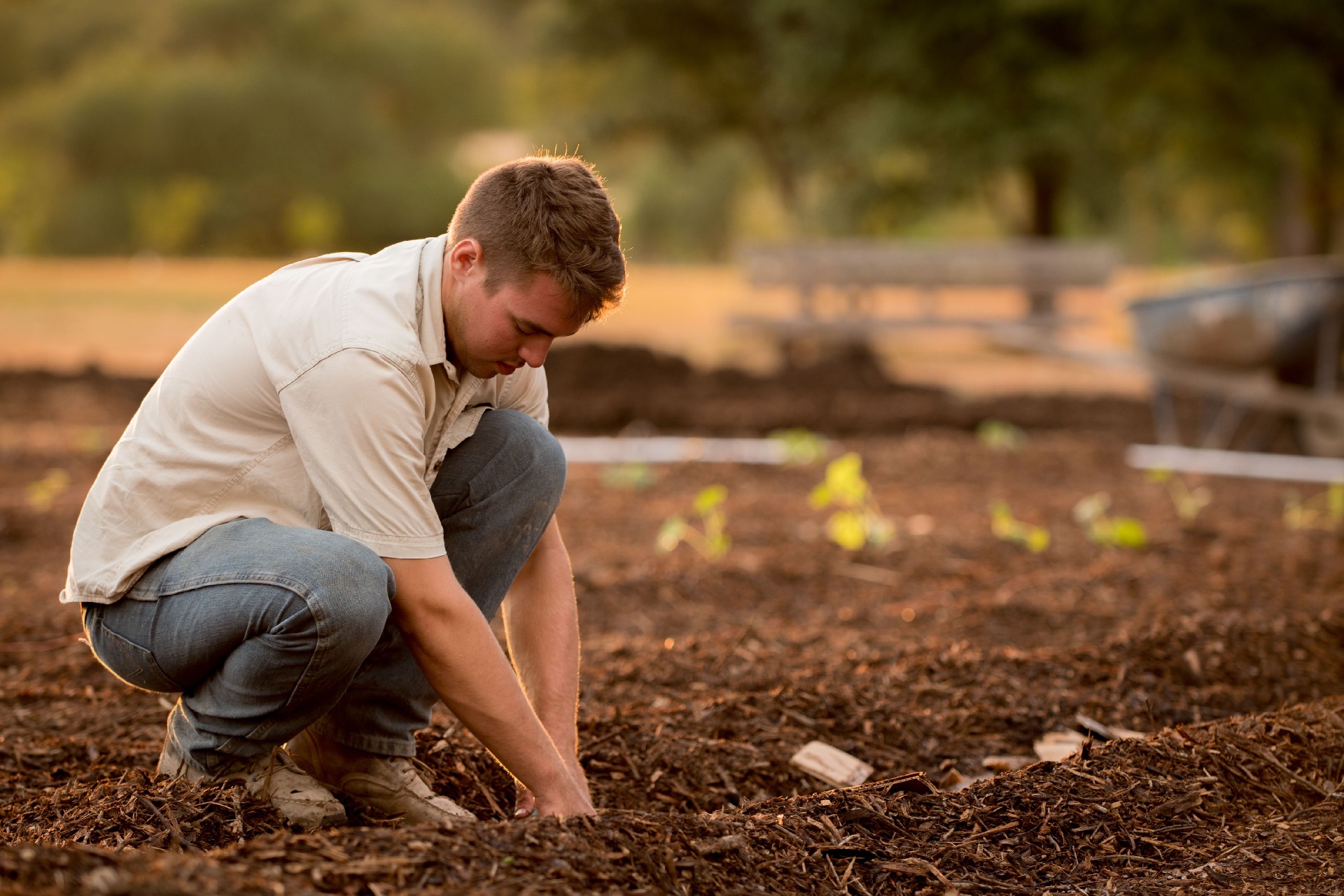By: The Church.Digital
I’ve been gardening for 9 years, and every year our garden grows bigger. This pandemic year meant we spent even more time in our garden, and my wife harvested a child’s wagon full of vegetables just this evening. My wife and I host a podcast where we talk about our garden week-by-week this year. That podcast and COVID-19 have given me the chance to think hard about lessons from my garden and how that applies to ministry in our current context. Here are 3 things I’m thinking about regarding gardening and ministry:
1. Pay Close Attention to the Soil.
My best gardening happens in our raised beds where we control most of what happens in the soil and can track changes.
This is our fourth summer in this house, our previous houses we only lived and gardened in them for two and three years. This year I’m learning that gardening depends on the soil. You can manage your way around the need to develop your soil by starting with raised beds, but eventually, you have to start working on your soil.
This year I noticed two side-by-side beds where one is producing bountifully, the other is limping along. When we took some time to think about it, we realized that the one doing really well has manure from a local dairy farm that has aged in a pile next to our shed, the other box has “compost and manure” bought in a bag from a big box store. The soil is what made the difference.
Working on the soil is a long process that you have to start long in advance, you might start with making your own compost, finding a farmer friend to give you manure that you can let age in a pile, etc. It takes work, planning, and patience, there is no easy route to developing your soil. If you don’t prepare and develop the soil, then you will struggle to grow anything.
How does this apply to ministry?
Some things in ministry are a slow process. They take preparation long in advance. “Sunday’s always coming” tends to be my attitude, but some things need more time to marinate. It is really easy in this current season to be rushing from one thing to the next and just try to get through the week or through the next milestone, but we should stop to think about what the “soil” of our ministry is that will help us grow.
For me, personal growth is some of the “soil” that needs work now. I’m coming off a hard year. People, conflict, and leadership challenges combined with a breakneck pace left me destroyed. Something that alarmed me was when I realized that I stopped learning and developing because I was so busy with hard and urgent matters. Learning and developing is the “soil” of my leadership. We have to put in the work in advance to prepare for future growth.
2. Keep Planting Seeds.
In years past, I farmed like an industrial farmer. I planted once, and then hoped that the success of the garden would last me all year. This year, I plan to plant more seeds every week. I ask every weekend, ”What can I plant?” I have to plan to plant or I can easily ignore it and think that this isn’t the time. I’ve learned that what doesn’t get planted doesn’t grow. So I focus on how and when to plant more.
One of my priorities this year has been to use whatever space and time that I have to grow more things. Whenever I have an open space, it is easy to plant more fast growing vegetables like lettuce, arugula, peas, or beans. Right now, I’m preparing to plant Brussels Sprouts and spinach because they prefer summer-to-fall weather.
The reality is that every seed doesn’t grow. I often plant two seeds in one hole just in case. With things like carrots and mesclun mix, I cannot predict which seeds will grow and which will never germinate. So to make up for that, I keep planting.
Jesus talked about planting seeds in the parable of the sower in Luke 8. The reality of our job in ministry is that we don’t know which seeds will grow. We don’t know who and when someone will take their next step of growth with Jesus. Our job is not to figure out how to engineer growth in a few people. Our job is to sow seeds and watch to see the results.
What does this mean for us in phygital ministry?
We need to be sowing the seeds that we want to see grow. We probably don’t plant enough seeds in our ministry.
In a phygital church world, I want to apply this to digital ad campaigns. For me, digital ad campaigns are like a modern day sowing of seed. We don’t know who is out there that needs to hear our message of hope and freedom, so we’re going to spread it far and wide. It is too easy for me to get bogged down into getting the ad campaign right and targeting correctly, but maybe targeting incorrectly is the seed that needs to be sown. Instead of targeting a few people perfectly, maybe we want to target all of the people around us imperfectly because we don’t know who is ready to hear the good news of Jesus.
A woman in our community came to Christ recently beginning with our church’s digital presence. One of her family members, living out of state, looked to find a church in our area. He connected with us digitally and then connected us with her physically, giving me the chance to share the gospel with her, and walk with her as she responded. That story is the result of us digitally sowing seed over a period of years. We didn’t know which seeds would pay off. So we kept scattering.
3. Gardening is Always Solar-Work.
This year, I’m marveling at the work of the sun to grow plants.
A couple of years ago, I taught my kids some science for their school and felt like I saw with new eyes the energy systems that turn sunlight into stored energy in the plants. When I walk through our garden now, I marvel at how they are turning beams from a distant star into structures that we can use and eat. I pay attention to when each part of my yard gets sun in the morning and when the they are in the shade in the afternoon or evening. When we have too many overcast days, I begin to worry about the health of the plants because they need sunlight to grow and develop. I think about how too much sun can cause some plants to grow too fast and turn bitter so maybe we need to set up shade cloth.
There is much to do in gardening like developing soil, weeding, watering, fertilizing, watching for pests, etc. All that work is for nothing, though, if there is no sun to shine on them. All our gardening work does not grow plants. The sun grows plants.
I’m writing this for ministry leaders, but we easily forget that ministry is a spiritual work. We easily have plans and methods and systems and strategies, but all growth is from God. 1 Corinthians 3:6-7 blatantly says this same thing, “I planted, Apollos watered, but God gave the growth. So neither he who plants nor he who waters is anything, but only God who gives the growth” (ESV).
Just as the sun is the big deal in plant growth, the Spirit’s work is the big deal in our church growth. Do we do phygital church like it is a spiritual work? Do we do all the important work that needs to be done while keeping in mind that we desperately need the face of God to shine on us and our communities?
I want to be aware in my own ministry that I need the face and work of God in my life and ministry, just like my garden needs the sun.
![]()

